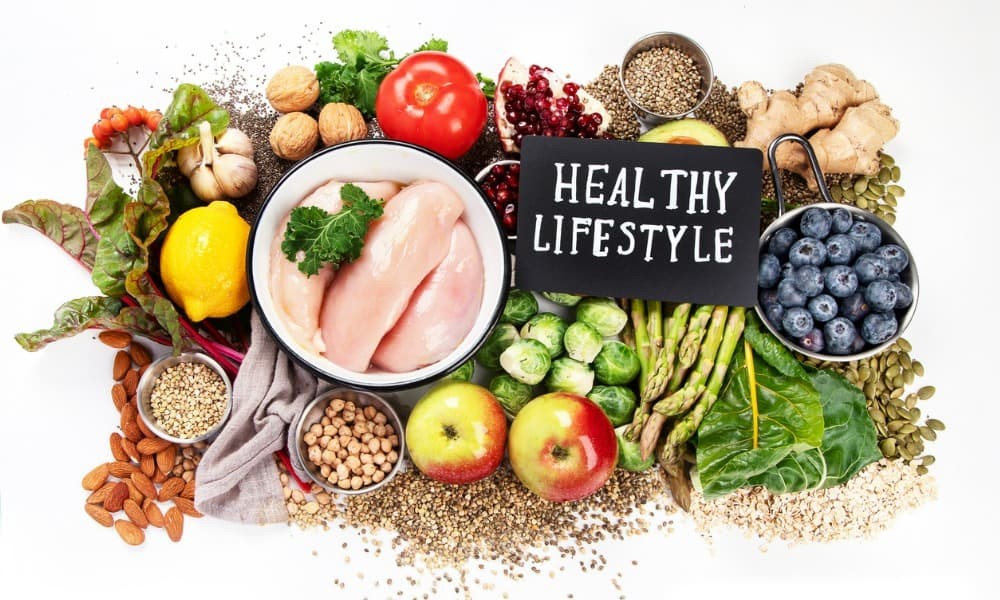
Eating a balanced diet is one of the most important steps you can take toward achieving good health, maintaining energy, and preventing chronic diseases. With today’s busy lifestyles and easy access to processed foods, many people struggle to maintain healthy eating habits. Yet, adopting a balanced diet doesn’t have to be complicated. By understanding what a balanced diet is and how to apply it daily, you can support your body with the nutrients it needs.
What is a Balanced Diet?
A balanced diet means consuming the right amounts of carbohydrates, proteins, fats, vitamins, minerals, fiber, and water to keep the body functioning at its best. It doesn’t mean cutting out certain foods completely but instead focusing on variety, moderation, and proportion.
A balanced diet ensures:
-
Adequate energy for daily activities
-
Proper growth and repair of body tissues
-
Strong immunity and disease prevention
-
Mental clarity and overall wellbeing
Components of a Balanced Diet
To achieve nutritional balance, your meals should include a mix of different food groups:
1. Carbohydrates – The Body’s Main Energy Source
Carbs provide fuel for the brain and muscles. Choose complex carbohydrates such as:
-
Whole grains (brown rice, oats, quinoa, whole wheat bread)
-
Fruits and vegetables
-
Legumes (beans, lentils, chickpeas)
Avoid too many refined sugars and white flour products, which can spike blood sugar levels.
2. Proteins – Building Blocks of the Body
Proteins are essential for repairing tissues, building muscles, and producing enzymes. Good sources include:
-
Lean meats (chicken, turkey, fish)
-
Eggs
-
Dairy products (milk, cheese, yogurt)
-
Plant-based proteins (tofu, tempeh, beans, nuts, seeds)
3. Healthy Fats – Essential for Brain and Heart Health
Fats are often misunderstood, but healthy fats are vital. Include:
-
Avocados
-
Olive oil, flaxseed oil
-
Nuts and seeds
-
Fatty fish (salmon, mackerel, tuna)
Limit saturated and trans fats found in fried foods, packaged snacks, and processed meats.
4. Vitamins and Minerals – Micronutrients for Wellness
Vitamins and minerals regulate body functions, strengthen immunity, and prevent deficiencies. For example:
-
Vitamin C: boosts immunity (citrus fruits, peppers)
-
Calcium: supports strong bones (milk, leafy greens)
-
Iron: helps carry oxygen in blood (spinach, red meat, legumes)
-
Potassium: regulates blood pressure (bananas, potatoes, beans)
A colorful plate with a variety of fruits and vegetables ensures you get a wide range of nutrients.
5. Fiber – For Digestion and Satiety
Fiber keeps your digestive system healthy and helps control weight. Sources include:
-
Whole grains
-
Fruits and vegetables with skin
-
Legumes and seeds
6. Water – The Forgotten Nutrient
Hydration is crucial for digestion, circulation, and temperature regulation. Aim for at least 8 glasses of water daily, more if you’re active or in hot climates.
Benefits of Eating a Balanced Diet
-
Improved Energy Levels: Balanced meals stabilize blood sugar and prevent energy crashes.
-
Healthy Weight Management: Eating the right portions of nutrient-rich foods prevents overeating.
-
Stronger Immunity: Proper nutrients boost the body’s defense against infections.
-
Reduced Risk of Chronic Diseases: A balanced diet lowers risks of diabetes, heart disease, and obesity.
-
Better Mental Health: Nutrients like omega-3 fats and B vitamins support brain function and mood.
Tips for Eating a Balanced Diet Daily
-
Start with breakfast: Include whole grains, protein, and fruit to fuel your morning.
-
Portion control: Use smaller plates and avoid oversized servings.
-
Plan meals: Meal prepping helps you avoid unhealthy fast food choices.
-
Limit processed foods: Choose fresh, whole ingredients whenever possible.
-
Snack smart: Replace chips and candy with nuts, yogurt, or fruit.
-
Follow the plate method: Fill half your plate with vegetables, one-quarter with lean protein, and one-quarter with whole grains.
-
Stay hydrated: Drink water instead of sugary sodas or energy drinks.
Common Myths About a Balanced Diet
-
Myth 1: Carbs are bad for you.
➝ Fact: Whole carbs are essential; only refined carbs should be limited. -
Myth 2: Fats make you fat.
➝ Fact: Healthy fats are crucial for heart, brain, and hormone health. -
Myth 3: Skipping meals helps with weight loss.
➝ Fact: Skipping meals often leads to overeating later.
Conclusion
Eating a balanced diet is not about strict restrictions or denying yourself your favorite foods. Instead, it’s about making healthier choices, practicing moderation, and ensuring variety in your meals. By incorporating whole grains, lean proteins, healthy fats, and plenty of fruits and vegetables, you can build a foundation for long-term health and vitality.
Remember: Your body is your most valuable asset. Nourish it well, and it will reward you with energy, strength, and wellness.

You must be logged in to post a comment.